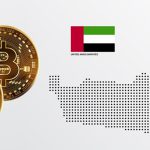Egypt is currently experiencing its worst economic crisis in five years as its annual inflation rate has surged to 21.3%, according to the state statistics agency Capmas. As a result, the government is coming under increasing pressure to find ways to deal with the deepening crisis. This inflationary crisis is further compounded by the depreciation of the embattled pound, which is negatively affecting both local industries that are dependent on imported materials as well as consumer goods. What makes things worse, critics say, is the fact that the crisis could have been mitigated in its initial stages had the government not focused on spending billions on mega infrastructure projects instead of prioritising the economic crisis.
Farouk Soussa, of Goldman Sachs International, has warned that the pound’s value is still overvalued and, despite three devaluations, there remains a strong parallel market. “In the absence of significant, near-term capital inflows [from the sale of assets to GCC countries, for example] and with only limited capacity at the Central Bank of Egypt to inject FX liquidity into the market, we think this implies further pound weakness and/or increases in local (interest) rates in the coming days,” he stated.
Naeem Brokerage Egypt has also predicted that inflation will continue to rise to the end of February due to the continuing slide of the pound and an anticipated rise in fuel prices. Allen Sandeep, of the firm, explained that food and non-alcoholic beverages had increased by 4.6% from November to December, mainly impacted by bread and cereals, dairy, vegetables and meat. Sandeep added that, although this would partially absorb the 25% devaluation in late October, it signalled further inflation was to be expected. The situation is not expected to improve any time soon as the currency is still far from reaching a “functioning equilibrium” and inflationary pressure will continue to weigh on Egypt’s economy for some time.
The government is trying to alleviate the situation by tightening its belt and cutting foreign currency spending and non-essential expenses at government ministries. Egyptian President Abdel Fattah El Sisi has urged the country’s 104 million inhabitants not to worry, to ignore rumours and to only listen to him and his government. While locals struggle to afford basic necessities, and with an expected rise in inflation up to the end of February, the future of Egypt’s economy remains uncertain.

عبدالرحمان زمین پیما
Author

آرمان جعفری
Author













